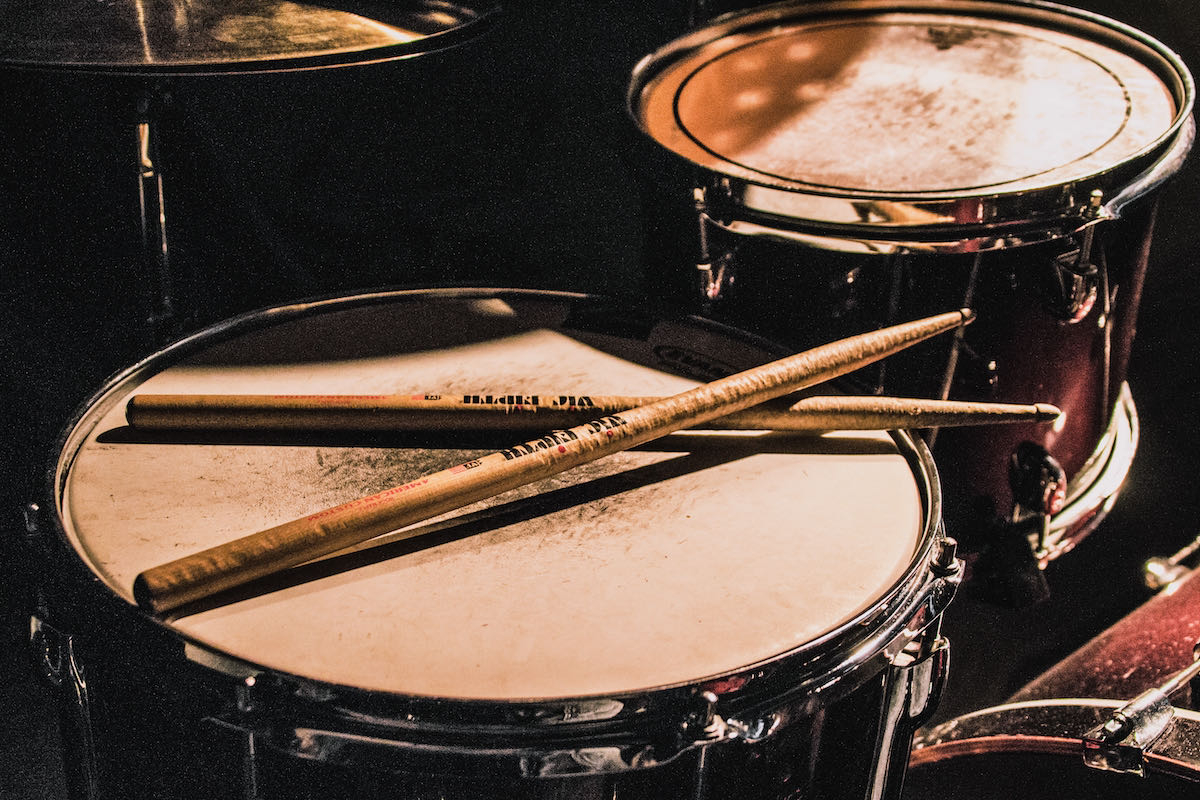
While a band is a close-knit group, there are admittedly some members who get the spotlight more than others. Drummers are often overlooked in favor of singers and lead guitarists, but they're the driving force behind every single song’s rhythm.
Drumming can be every bit as complex as playing the guitar, and may even be crucial for learning how to play the latter. In fact, research has even shown that drumming makes the brain more efficient, eventually requiring less activity to do motor tasks.
This experience has proven useful for musicians who set out to master another instrument. In many cases, band members will need to be versatile, and many have learned how to play another instrument at some point. To illustrate, here are four notable drummers-turned guitarists everybody needs to know about:
1. Dave Grohl
Perhaps one of the most recognized drummers who eventually became a frontman and guitarist is none other than The Foo Fighters' Dave Grohl. At 18, he dropped out of high school to drum for the hardcore punk band Scream, before popularizing alternative rock and grunge music with Nirvana. After Kurt Cobain's tragic death, Grohl went on to lead The Foo Fighters as the band's guitarist and lead singer.
Even though his guitar of choice is a Gibson Trini Lopez signature ES-335 (and later, the Axl Rose-gifted Gibson ES 335 Dot) and credits it as the defining sound of their band, he still insists that he isn't good enough to master Lynyrd Skynyrd's "Free Bird" — a humble statement from someone whose bands have been inducted into the Hall of Fame!
2. Patrick Wilson
Patrick Wilson was the drummer for Weezer for nearly two decades since the band's inception in 1992. However, he was also able to explore his love for the guitar while working on side project Special Goodness, helping him transition to guitar-playing roles during Weezer's tours starting in 2009.
He's well known for using classic equipment like the Fender Stratocaster and the Gibson SG, both electric guitars that deliver the distinctive sound that most listeners have come to know today. For the Stratocaster in particular, this is thanks to its three pickups and vibrato. When it first came out in the 1950s, it didn't look or sound like any other guitar, which is why Wilson's choice in his instruments made it possible for him to become a successful guitarist after his long stint on the drum kit, and the world of rock and roll is much better for it.
3. Danielle Haim
While Danielle Haim has no doubt owned being front-and-center when she performs with her sisters, she still does much of the drumming on their records. Before she started playing the guitar for HAIM, Danielle joined Julian Casablancas of The Strokes as a backup musician on both guitar and percussion. She is also a fan of the Gibson Les Paul, which is her instrument of choice, especially when playing live.
Danielle is more of a multi-instrumentalist rather than just a drummer and a guitarist, as she consistently plays both as well as other instruments live or in the studio. Other all-female bands can certainly take inspiration from the versatility of musicians like Danielle Haim and continue breaking the mold in the world of rock, whether on drums or guitar.
4. Don Henley
Some drummers have no choice but to retire their sticks because of how taxing the instrument can be to play. One example is Don Henley, who used to be a part of the legendary country rock movement in the 1970s. The Eagles were one of the bands that made milestones on the rock scene in the 70s, and Henley happened to play as their drummer.
Despite drumming for The Eagles and even Guns N’ Roses, Henley now prefers to be in front of a microphone, on guitar, or both. He explained how much playing the drums hurt his back, especially after years of sitting in a position that eventually misaligned his spine. These days, he's more content and focused on songwriting and singing while other drummers do the heavy-duty work.
These four musicians succeeded in playing numerous instruments because of one driving factor: their passion for music. In pursuit of making that music, drums were particularly crucial, and these musicians rocked in the different roles they played.
